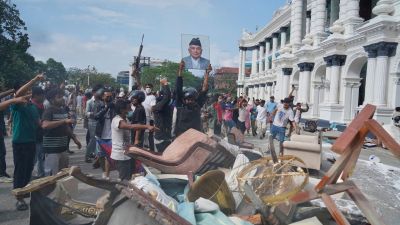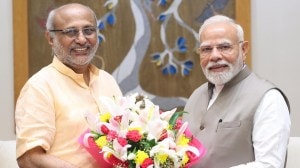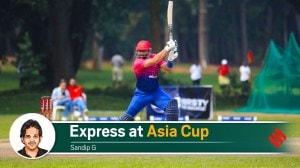‘Cricket PIL’ takes fresh guard over BCCI identity
Seven for four is a poor start to a cricket match. For Rahul Mehra and Shantanu Sharma it the number of benches their ‘‘cricket PI...

Seven for four is a poor start to a cricket match. For Rahul Mehra and Shantanu Sharma it the number of benches their ‘‘cricket PIL’’ has been transferred to over four years at the Delhi High Court. On Friday morning, it is listed in the court of Chief Justice B.C. Patel and Justice Badardurrez Ahmed, having barely moved from first principles in four years and three days of its existence.
For lawyer Mehra and businessman Sharma — the school friends and cricket fans were 26 when the case was filed, are pushing 31 now — the issue remains what it was on day one: does the Board of Control for Cricket in India (BCCI) fall under writ jurisdiction? In layman’s terms, is the BCCI answerable to the public in the same manner as, say, the government is?
It may seem an arcane legal point. Four years ago, it was a more emotional issue, encapsulating the anger and frustrations of millions of cricket fans, fed up of the way the BCCI ran the game.
Mehra and Sharma had argued in their petition — the respondents were the Union of India (Department of Sport), the BCCI and the DDCA — that the BCCI described itself as a private body ‘‘registered under the Societies Registration Act in 1940’’ to run cricket. In reality, they submitted, it was ‘‘the private empires of some businessman and traders’’:
• The DDCA was not registered under the Societies Act but ‘‘organised as a company under Section 25 of the Companies Act’’. Its legal proxy voting system was tailormade for misuse: In the 1999-2000 election, the PIL notes, ‘‘only around 100 members of the DDCA were physically present for the voting — while about 2,700 votes were cast by way of proxy’’.
• The BCCI’s coaching expenses in 1998-99 ‘‘were less than 1.1 per cent of revenue and less than 2.2 per cent of expenditure’’. The DDCA’s sale of ‘‘over Rs 33 lakhs worth of liquor in 1998-99 is nearly five times the total expenses on coaching and promotion of cricket expenses for the last 11 years’’.
• It felt the BCCI came under the purview of PIL because it received income tax and entertainment exemptions and ‘‘soft leases’’ ultimately paid for by the taxpayer. The annual rental for the Mohali stadium is Re 1, for the Ferozeshah Kotla Rs 27,800 and for the Chinnaswamy Stadium in Bangalore Rs 1,000
• In contrast to the Australian Cricket Board, a business corporation that pays for security arrangements, the BCCI is the beneficiary of public-sponsored policing of its matches.
It was heady stuff but, four years on, where has it got? Not very far. The Union government and the BCCI have filed affidavits arguing that the writ be dismissed. The BCCI argues it derives the ‘‘monopoly’’ it is ‘‘alleged to possess’’ from its membership of the ICC and has nothing to do with the Government of India.
The government’s affidavit says, ‘‘The Department (of Sports) provides no financial assistance to BCCI for any purpose’’. There is no mention of subsided rentals or tax breaks.
When Ajay Jadeja challenged his post-fixing ban by the BCCI in the high court, the essential question was the same: did the writ jurisdiction apply to the BCCI? Could it be hauled up for infringing an individual’s rights?
In September 2001, the court upheld Jadeja’s case arguing, essentially, that the BCCI had to choose between being an all-out private, market-driven entity and a form of crony socialism.
The BCCI appealed and, in November 2002 the Mehra-Sharma PIL was tagged along as an identical legal point was in contention. In November 2002, Jadeja and the BCCI agreed to go in for arbitration. In its order detailing the arbitration provisions, the court also vacated the earlier judgment of September 2001.
For Mehra and Sharma it was back to square one. Another round of transfers from one bench to another followed. For four years the court has not been able to clarify to them whether the BCCI is accountable to the people of India or not. Maybe, just maybe, they’ll get lucky on Friday.
Photos



- 01
- 02
- 03
- 04
- 05



























